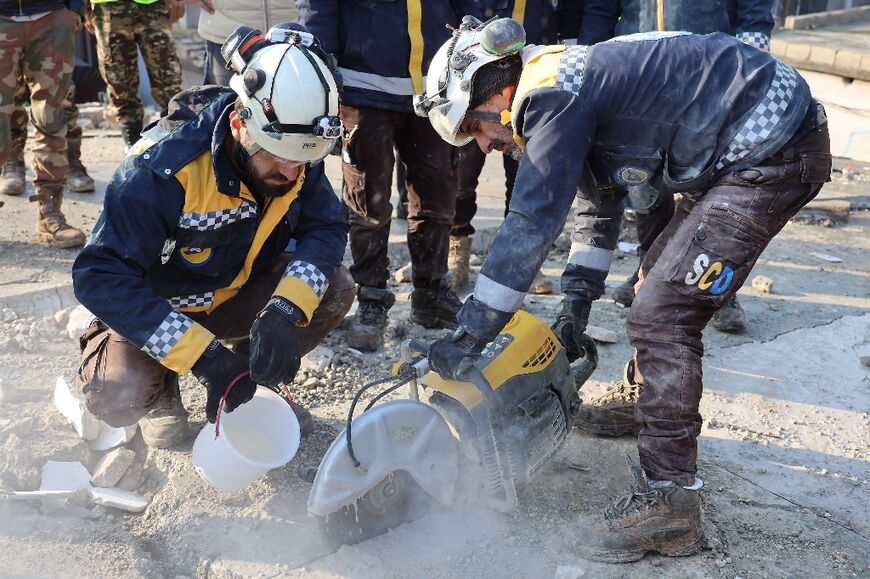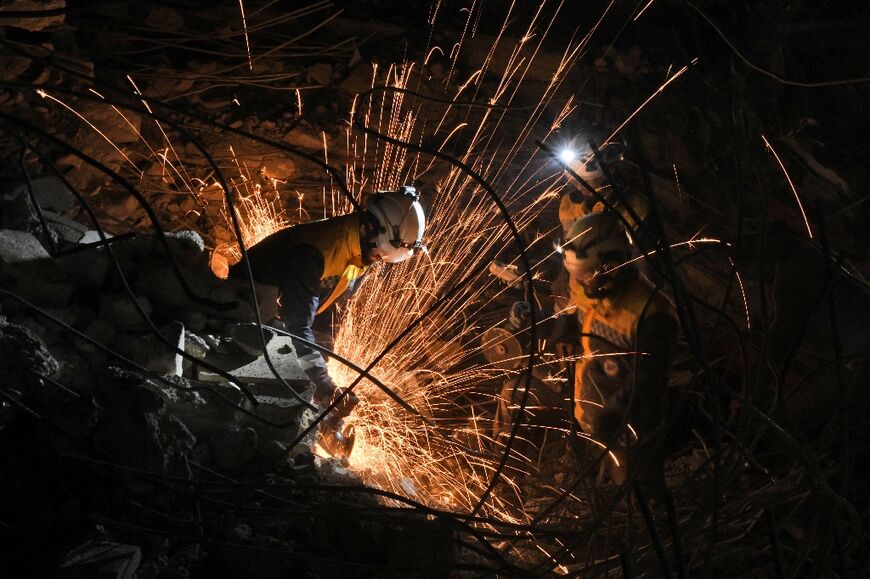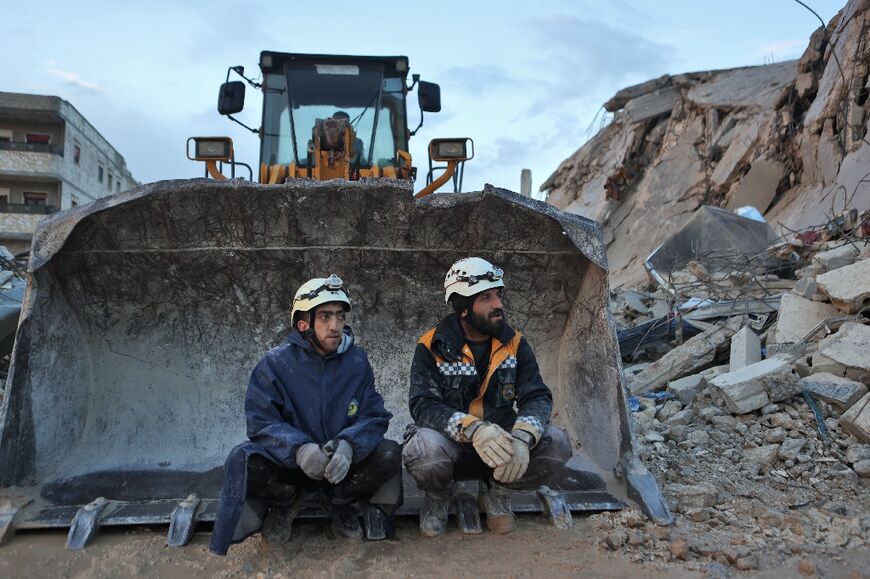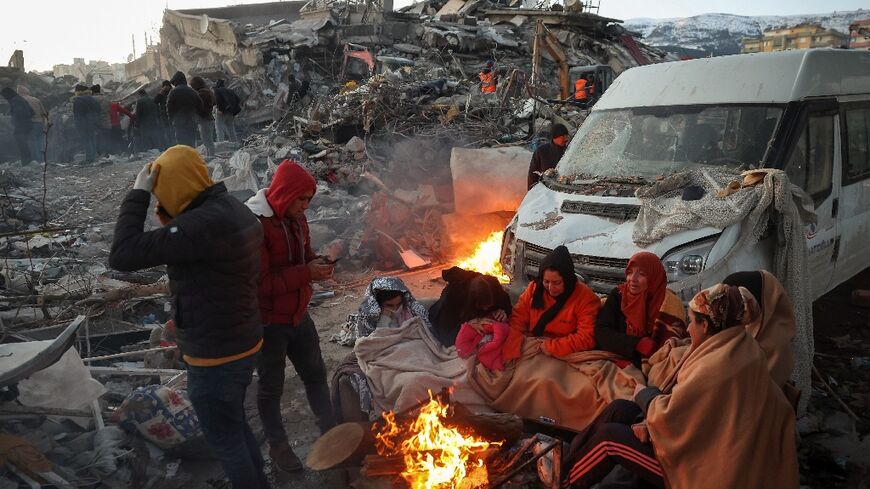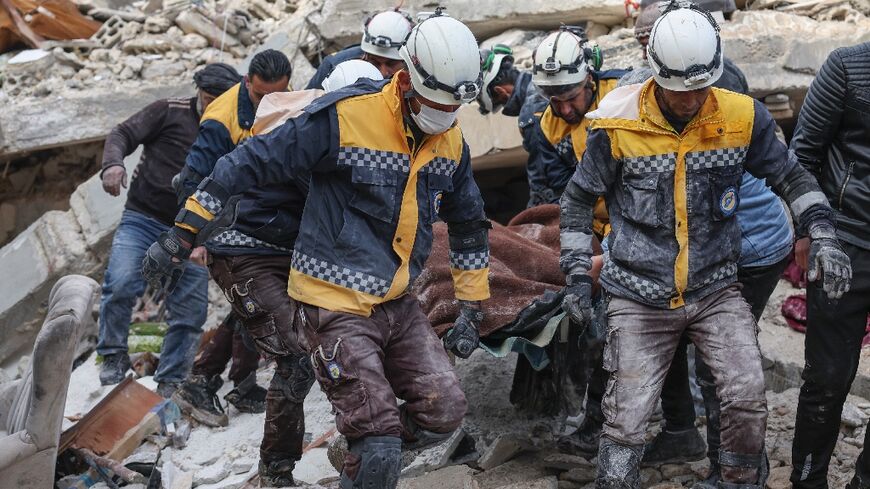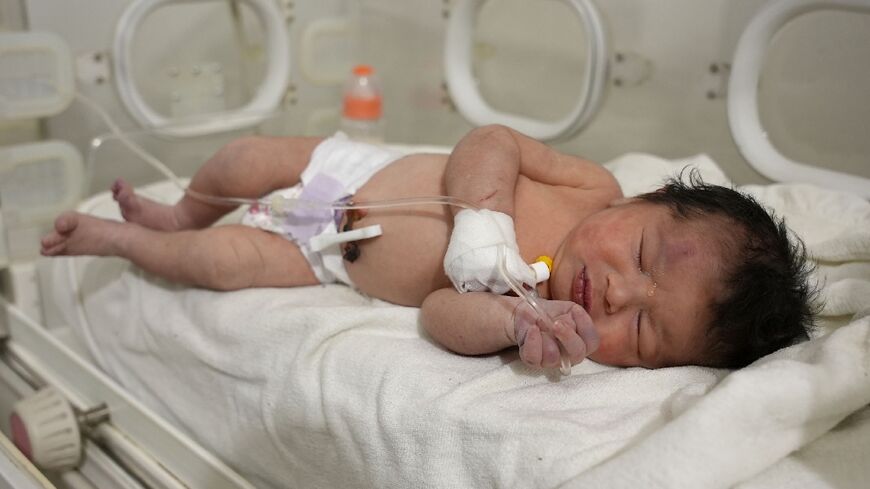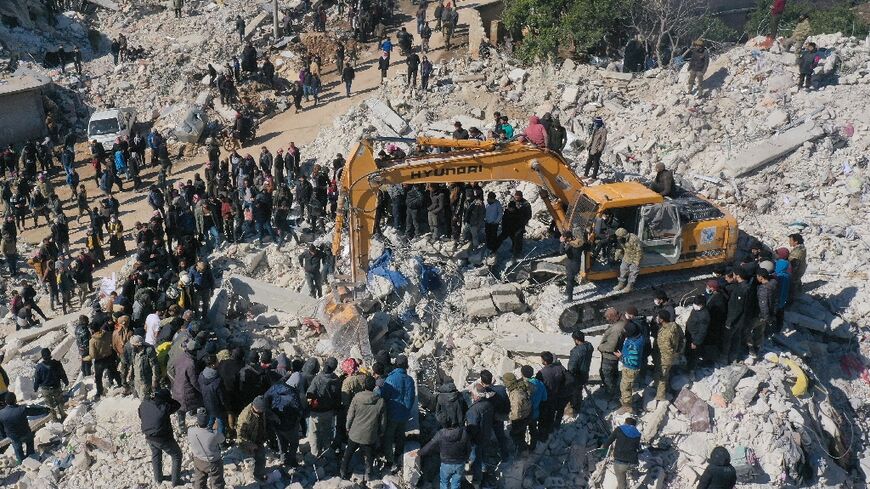Syria's White Helmets rescuers urge international quake help
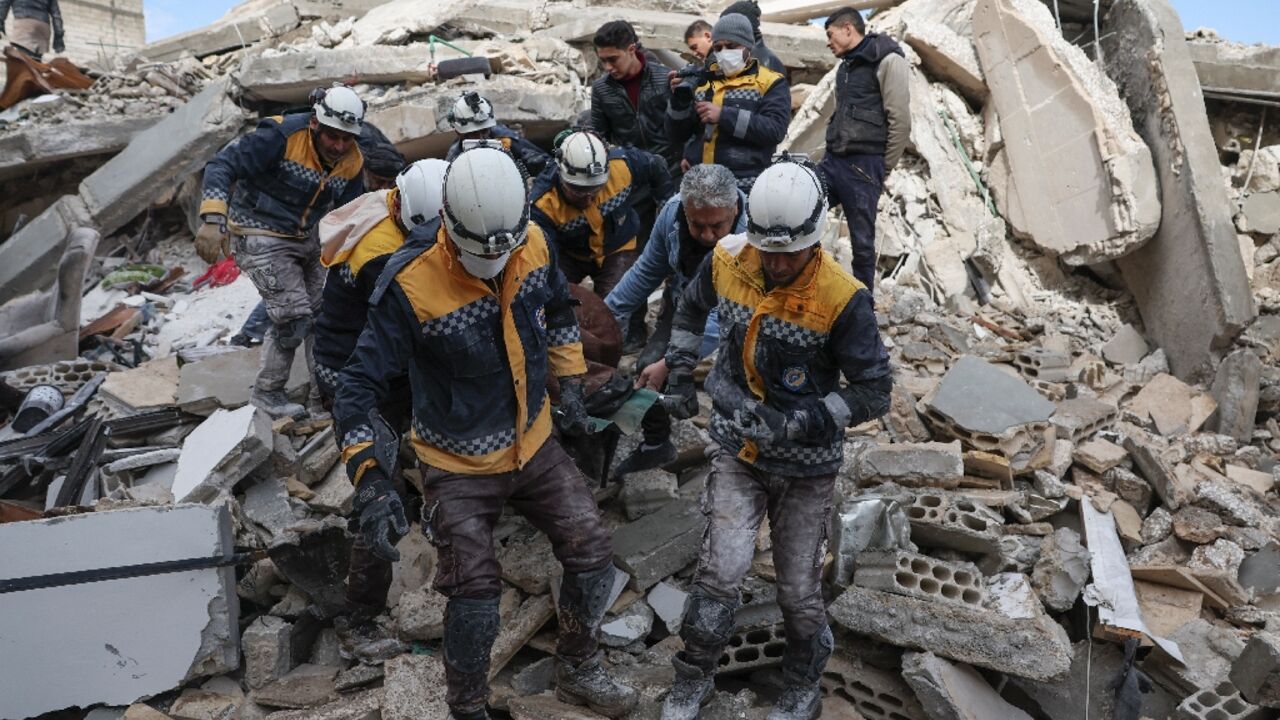
The White Helmets leading efforts to rescue people buried under rubble in rebel-held areas of earthquake-hit Syria appealed Wednesday for international help in their "race against time".
First responders from the group that was formed a decade ago to save the lives of civilians during Syria's civil war sprung into action early Monday when a 7.8-magnitude quake rocked Turkey and Syria.
They have been toiling ever since to pull survivors out from under the debris of dozens of flattened buildings in northwestern areas of Syria outside government control.
In a video widely shared on social media, crowds of people surrounding the White Helmets cheered loudly as they lifted a young girl and her family from a collapsed building in Idlib province.
"International rescue teams must come into our region," said Mohammed Shibli, a spokesperson for the group officially known as the Syria Civil Defence.
"People are dying every second; we are in a race against time," he told AFP from neighbouring Turkey.
"We ask the international community to shoulder its responsibilities towards the victims."
Monday's earthquake devastated entire sections of major cities in Turkey and Syria, killing more than 11,200 people, injuring thousands more and leaving many more without shelter in the winter cold.
In Syria alone at least 2,662 people have been killed, according to the government and the rescuers.
Shibli said it was "impossible" for the group to respond to the large-scale calamity alone in the rebel-held northwest, home to more than four million people.
"Even states can't do that," he said, adding that the group's volunteers have not had time to reach all of the disaster-struck places.
- Digging with bare hands -
Britain announced Wednesday that it would release an additional 800,000 pounds ($968,000) to aid the White Helmets, which who also carries the bodies to the burial grounds.
The rescue group said Egypt had sent a technical team and physicians to support rescue operations and tend to victims.
The White Helmets have been internationally praised for their work, with a Netflix documentary called "The White Helmets" winning an Academy Award in 2017, while a second film focused on the group, "Last Men in Aleppo", was a 2018 Oscars nominee.
They have 3,300 volunteers, including 1,600 dedicated to search and rescue operations.
"After 56 hours of continuous work... hundreds of families are still missing or trapped under the rubble," Shibli said.
"People's chances of survival are declining" in the biting cold, he said.
The group needs heavy machinery, spare parts for the ones they already have, and equipment, "but when will we get them", Shibli asked.
AFP correspondents across the war-ravaged country said rescue workers and residents have had to sift through the rubble with their bare hands.
The region's hospitals were also at full capacity, he said.
"Hospitals are paralysed, especially the surgery departments," Shibli said, adding some had closed their morgues.
- 'Catastrophic' situation -
The situation was "catastrophic", said Hussein Bazar, a health official from the rebel-held Idlib region's so-called Salvation government, who also pleaded for help Wednesday.
"We are unable to provide healthcare to those who need it," he told a news conference, adding that "yesterday we couldn't even provide blood bags for patients".
Doctor Mohammed Eisa of the Syrian American Medical Society, which has a network of hospitals in the northwest, said surgeons were on "high alert" after the tragedy.
The region no longer has round-the-clock electricity as it largely relied on the battered Turkish power grid, with hospitals now powered by private generators, he said.
"We have fuel but it will only last two or three days.
"The region was already vulnerable... but after the quake we not only need medical supplies, but also food and shelter," the doctor said.
White Helmets volunteer Fatima Obeid said teams were busy at work despite exhaustion.
"Being able to pull survivors brings them indescribable joy and excitement," she told AFP from Sarmada in Idlib.


